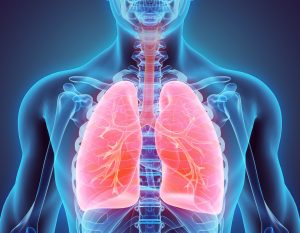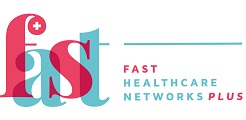
FAST Healthcare - Asthma Innovation Challenges
FAST - Asthma Innovation Challenges
Tuesday 27th November 2018 (9.30 am – 3.15 pm)
St. Catherine’s College, University of Oxford, UK

3D illustration of Lungs - Part of Human Organic.
What is this Challenge about?
5.4 million people have asthma in the UK, which means asthma affects one in every 11 people and one in 5 households. Every 10 seconds someone is having a potentially life-threatening asthma attack. Imagine being paralysed by fear as you struggle to breathe, unable to speak, unable to ask for help. That's what an asthma attack feels like. 3 people a day die from an asthma attack. Tragically, two-thirds of those asthma deaths could have been prevented with better care but two-thirds of people with asthma are still not receiving this. Whilst it is increasingly clear that asthma is not a single condition, but a collection of symptoms caused by different mechanisms, little is understood about the different subtypes of asthma. The cost burden to the UK is also significant. Asthma costs £1.1bn in the UK alone and it has a significant impact on productivity, with ~6.9 million school and working days each year due to asthma.
The FAST – Asthma Innovation Challenge event focussed on four key asthma innovation challenge areas and the development of collaborative research proposals to address these areas of unmet need and improve the quality of life of people living with asthma. The scale, complexity and episodic nature of the asthma means that it is highly suited to a systems-engineered approach.
Development of research proposals
Speakers from Asthma UK outlined the four asthma innovation challenges and areas of unmet need. Delegates then broke into project teams to discuss potential approaches to the challenges posed by the charity representative, with the intention of forming small teams to develop project roadmaps and write proposals for funding. The deadline for submissions of proposals took place after the event itself. It was imagined that up to two such proposals will be funded, at around £30k each. The call for proposals was published in January 2019.
Objectives of the workshop
This workshop was the starting point towards the development of research proposals that address the asthma innovation challenges. Following the workshop, there was a Call for proposals for pilot projects which initiate new research collaborations to address the asthma innovation challenges. Proposals to the Call had to include at least one person in the research team who attended this Workshop.
Workshop structure
The workshop was divided into two sessions, covering two asthma innovation challenges in each session. Both sessions started with the presentation of two challenges (including the background to the challenges) by an Asthma UK representative and were followed by structured road mapping and proposal development session, into which all participants contributed.
The four challenge areas presented were:
- Danger in the home: Some aspects of the home are known to trigger asthma including dust, dust mites, damp and mould. For children, poor quality housing is a key driver of the development of asthma, along with socioeconomic status. How can we protect children from these environmental dangers in the home?
- Getting kids active: How can we encourage children with asthma to be more active safely?
- Teaching inhaler technique: With low cost digital technology how can we tell whether people with asthma have taken their inhaler correctly and offer tailored advice?
- Scaling personalised asthma health advice: How can we automate Asthma UK’s personalised and empathic nurse advice channels to deliver 24/7 personalised asthma health advice?
Confirmed speakers
4 speakers from Asthma UK including
- Kay Boycott, Chief Executive, Asthma UK
- Nina Blackett, Director of Digital Health, Asthma UK
Who attended this Workshop?
We welcomed early career participants from across the clinical, the academic engineering and physical sciences and industrial communities to this Workshop. Attendance was FREE, but spaces were limited. Academic and other non-commercial participants from the UK will be able to have reasonable travel expenses reimbursed (subject to the University of Cambridge’s standard conditions).
Important dates
Online applications’ deadline: 19th November, 2018
Successful applicants informed: 22nd November, 2018
Workshop takes place: 27th November, 2018
Who organised this Workshop?
The Workshop was put together by Professor David Clifton (Engineering Science, Oxford University) along with Professor Andrew Flewitt (Engineering Department, Cambridge University) for the EPSRC Fast Assessment and Treatment NetworksPlus. The Network promotes joined-up treatment in public health by taking a holistic view of clinical assessment and treatment pathways and developing solutions that deliver real impact on clinical treatment and patient outcomes. We will initiate new research collaborations in the UK engineering and physical sciences communities.
